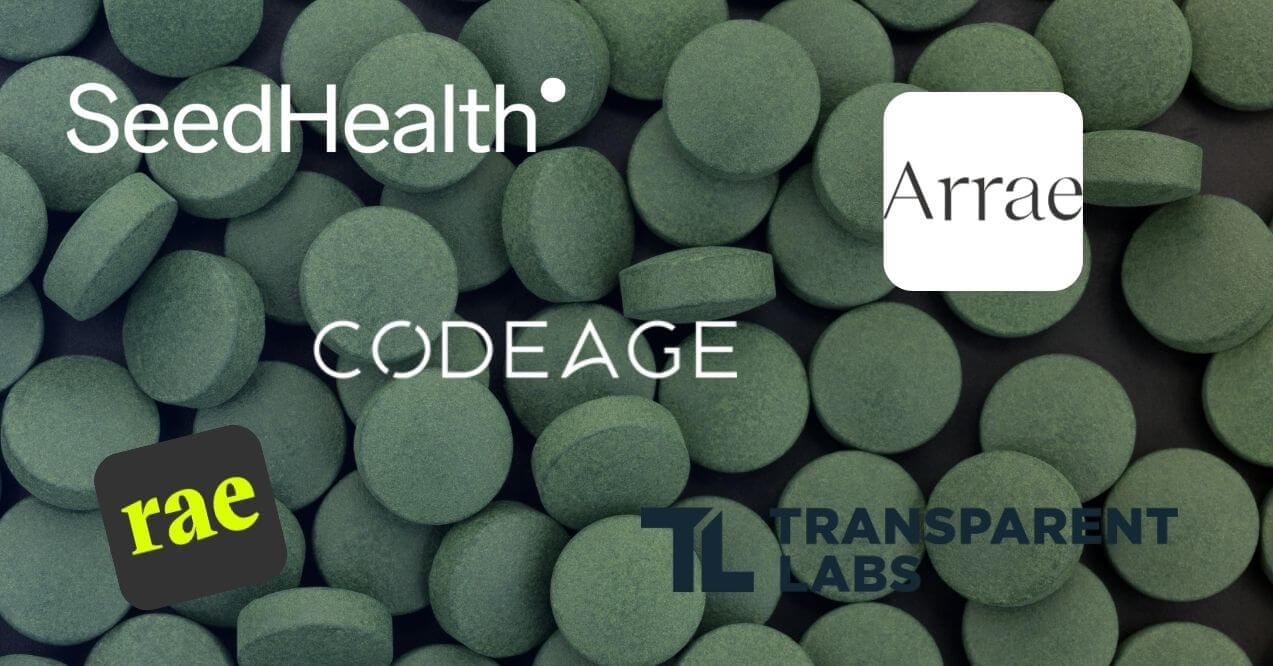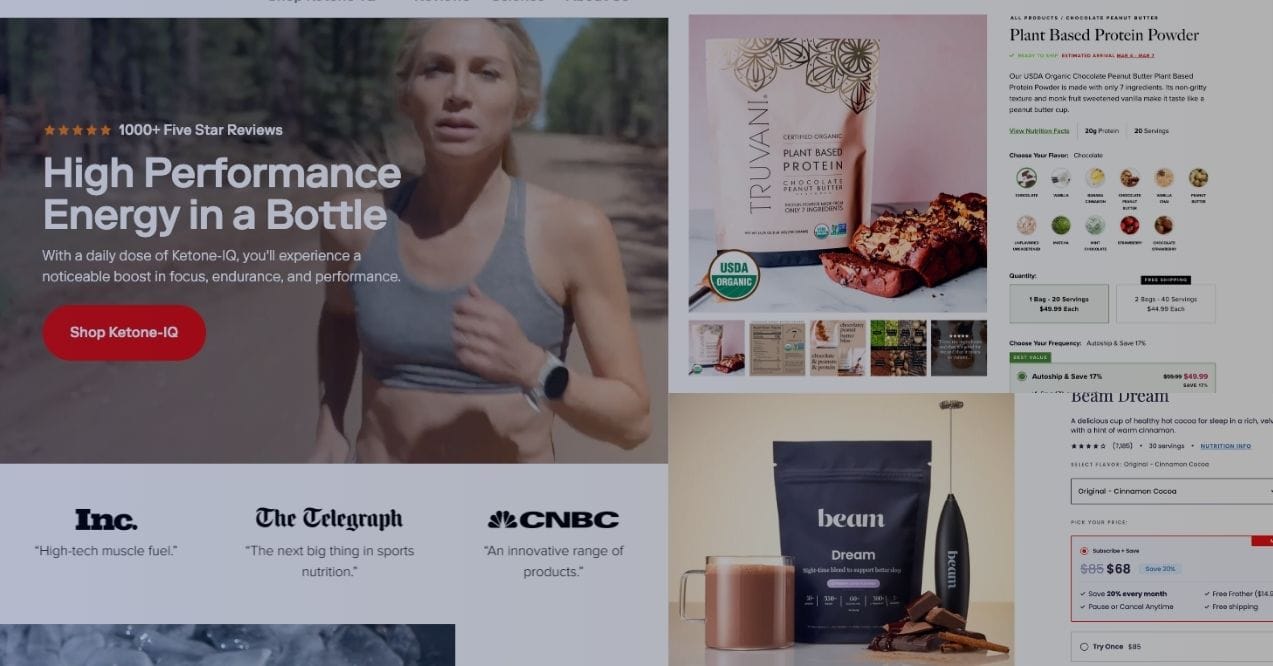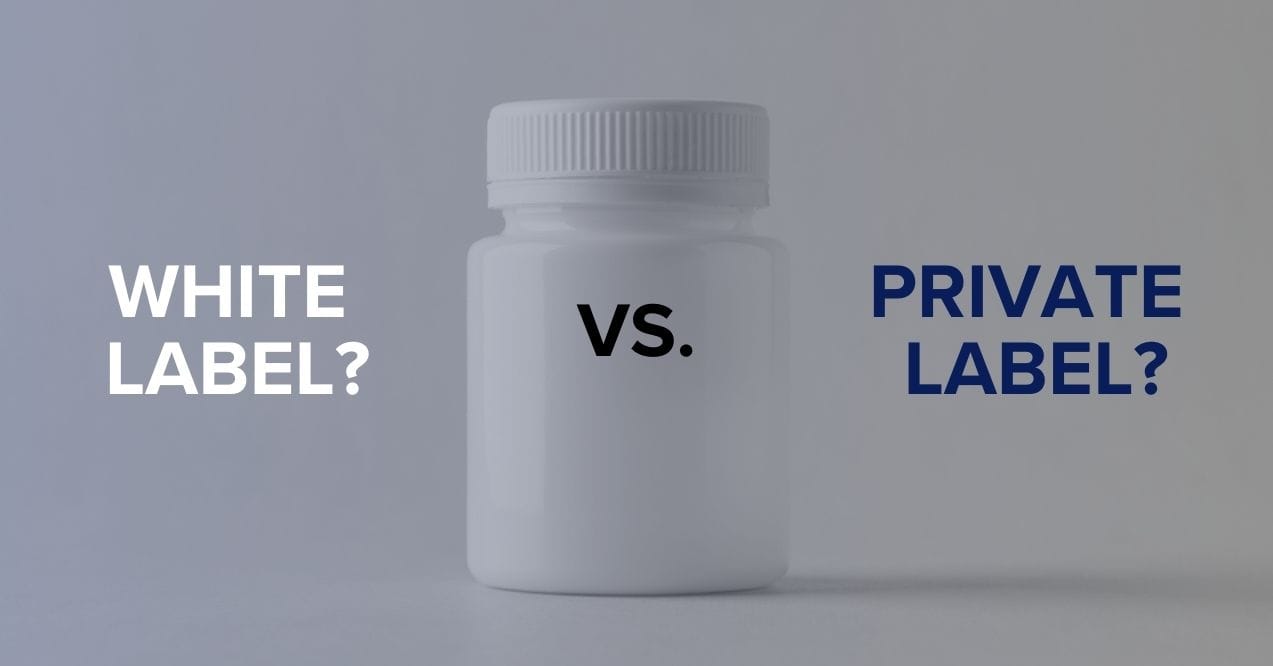Best Supplement Marketing Tactics That Work in 2026


In the dynamic world of health and wellness, supplement marketing has evolved far beyond traditional approaches. Opportunities for growth are abundant, but success demands more than just having a quality product. Today’s supplement brands need strategic marketing that builds trust, engages target audiences, and drives sustainable growth.
Whether you’re launching a new brand or scaling an existing one, proven marketing tactics can position your business for success in 2026. In this guide, you’ll discover actionable steps to grow your supplement brand. Let’s dive in!
Understanding The Supplement Market
The supplement industry continues to experience remarkable growth in 2026, building on the momentum of recent years. Current market data indicates that the global supplement market is projected to reach $372.42 billion by 2030, growing at a compound annual growth rate (CAGR) of 9.1%. What’s driving this growth? A fundamental shift in how people perceive health and wellness.
Key Market Indicators:
- 77% of Americans now regularly take supplements.
- Consumers spend an average of $510 annually on supplements.
One of the most significant changes in the industry is evolving consumer behavior. Today’s supplement buyers are:
- More educated about ingredients and formulations
- Increasingly focused on preventative health
- Research-driven in their purchasing decisions
- Looking for brands that align with their values
The post-pandemic landscape has permanently altered how people view supplements. Rather than just treating specific conditions, consumers now see supplements as an essential part of their daily wellness routine. This shift has created new opportunities for brands that can effectively communicate their value proposition and build trust with their audience.
Essential Foundations Before Marketing
Before launching a supplement marketing campaign, brands must establish a strong foundation. The supplement industry is highly competitive and closely regulated, meaning success depends on more than just great products. Compliance, trust, audience understanding, and brand differentiation are key elements that set thriving brands apart.
1. Regulatory Compliance Requirements
One of the biggest challenges in dietary supplement advertising is ensuring compliance with regulations. Authorities like the FDA (U.S.), EFSA (Europe), and TGA (Australia) strictly regulate supplement marketing claims to prevent misleading information. Here’s what you need to know:
- You cannot claim a supplement treats, cures, or prevents any disease (e.g., “eliminates arthritis”). Instead, use structure/function claims, such as “supports joint flexibility.”
- Marketing statements must be backed by scientific evidence – no misleading language or exaggerated promises.
- Ingredient lists, dosage instructions, and potential side effects must be accurate and easy to understand.
- Customer reviews must be authentic and typical – no fake endorsements or unrealistic results.
Neglecting compliance can lead to legal consequences, product recalls, or loss of consumer trust.
2. Building Trust and Credibility
Consumers today are skeptical of exaggerated claims. To stand out, supplement brands must prioritize transparency and authenticity. Key trust-building strategies include:
- Third-party testing and certifications (e.g., NSF, USP, GMP)
- Clinical research backing for ingredients
- Customer reviews and user-generated content to showcase real experiences
- Clear labeling that highlights ingredient sourcing, dosage, and benefits
3. Understanding Tour Target Audience
Effective supplement marketing starts with knowing who you’re selling to. Consumer needs vary by age, lifestyle, and health goals.
- Younger Adults (18-34) – This digitally-native generation prioritizes personalized supplement solutions and sustainable practices. They prefer convenient formats like gummies and powders, engage heavily with social media, and make purchasing decisions based on brand values and peer recommendations.
- Middle-aged Adults (35-54) – Career-focused individuals seeking balance between work and wellness. They prioritize energy support, stress management, and preventive health solutions. This group thoroughly researches products and values scientific validation through clinical studies.
- Senior Adults (55+) – Health-conscious mature consumers focusing on maintaining quality of life. They seek supplements supporting joint health, cognitive function, and heart health. This group strongly values healthcare professional recommendations and prefers established brands with proven track records.
- Athletes & Fitness Enthusiasts – Performance-driven individuals across age groups looking for specific results. They prioritize high-quality protein supplements, pre/post-workout formulations, and recovery support. This segment values third-party testing certifications and responds well to influencer endorsements.
4. Product Positioning and Differentiation
With thousands of supplements available, a clear unique selling proposition (USP) is crucial. Successful brands define what makes them different through:
- Ingredient innovation (e.g., bioavailable formulations, adaptogens, or rare botanicals)
- Superior quality (e.g., organic, vegan, non-GMO)
- Brand storytelling (e.g., company mission, ethical sourcing, or founder’s journey)
Effective Supplement Marketing Tactics
A strong supplement marketing strategy relies on digital channels to reach and engage health-conscious consumers. With increasing competition in the supplement industry, brands must focus on content-driven engagement, search engine optimization (SEO), and personalized outreach to build trust and drive conversions.
1. Content Marketing and SEO
Content marketing is one of the most effective ways to attract and retain customers. Instead of direct promotion, content marketing provides valuable, relevant, and informative content that educates, entertains, or solves consumer problems. This helps establish brand credibility, authority, and customer loyalty in an industry where trust is essential.
To maximize effectiveness, supplement brands should ensure their content:
- Addresses the specific health goals and concerns of different consumer segments (e.g., immunity support, muscle recovery, longevity).
- Includes blog posts, in-depth guides, videos, and infographics that answer consumer questions and help build brand authority.
- Is published regularly to maintain engagement and brand visibility.
- Is adapted for websites, social media, email, and video platforms to reach a broader audience.
SEO (Search Engine Optimization) is critical for ensuring content ranks well on Google and other search engines, driving organic traffic to supplement websites. SEO involves:
- Keyword research – Identifying and using high-value search terms (e.g., “best protein supplements for muscle gain”) in content.
- High-quality content – Google prioritizes informative, well-structured content that provides real value to users.
- On-page optimization – Optimizing headings, meta descriptions, and images to enhance search visibility.
- Backlinks – Gaining links from reputable websites boosts a brand’s authority and search rankings.
- User experience (UX) – Fast-loading, mobile-friendly, and easy-to-navigate websites improve rankings and engagement.
For dietary supplement marketing, SEO not only increases visibility but also helps capture potential customers actively searching for supplement solutions. By integrating content marketing and SEO, brands can build a strong digital presence and drive sustainable growth.
2. Paid Advertising
Paid ads accelerate supplement sales by targeting high-intent buyers on search engines and social platforms. With over 60% of shopping journeys starting online, digital ads play a crucial role in driving conversions.
Best Platforms for Paid Ads:
- Google Ads & Performance Max – Targets users searching for supplement-related keywords.
- Amazon Sponsored Ads – Optimizes product listings and boosts visibility on the world’s largest marketplace.
- Facebook & Instagram Ads – Uses interest-based targeting and retargeting to attract potential buyers.
- TikTok Ads – Engages younger demographics with viral, short-form video content.
Best Practices for Paid Ads:
- A/B Testing – Experiment with different headlines, images, and CTAs to improve conversions.
- Retargeting Ads – Show ads to people who visited your website but didn’t purchase.
- Subscription & Bundle Offers – Encourage higher cart values with discounts on bulk or recurring purchases.
Paid advertising, combined with organic marketing efforts, allows supplement brands to scale quickly and maximize revenue.
3. Social Media Marketing
With 4.8 billion users worldwide, social media is a powerful tool for supplement advertisement. Many users come across new products while browsing these networks, highlighting the importance of brands maintaining an active presence.
Why Social Media Matters for Supplement Marketing:
- Builds brand awareness and engages potential customers.
- Provides customer insights based on engagement and feedback.
- Supports paid advertising with targeted reach.
Best Social Media Strategies:
- Educational Content – Post infographics, videos, and blog snippets explaining supplement benefits and usage.
- User-Generated Content (UGC) – Encourage customers to share testimonials, reviews, or before-and-after results to build trust.
- Influencer Collaborations – Partner with health, wellness, and fitness influencers to promote supplements authentically.
- Brand Consistency – Use cohesive visuals, messaging, and branding elements across all social media platforms.
To maintain consistent engagement, supplement brands should:
- Maintain a consistent posting schedule tailored to each platform’s optimal timing.
- Respond promptly to comments and messages, fostering genuine conversations.
- Track engagement rates, reach, and conversion data to optimize content strategy.
- Modify content based on performance data and audience feedback.
Among all platforms, Instagram and TikTok perform exceptionally well for supplement brands due to their high engagement rates and visual content appeal.
4. Email & SMS Marketing
Email marketing continues to be one of the most effective channels for generating returns, providing a cost-efficient way to engage with customers. SMS marketing is also growing, offering direct communication with customers for promotions and updates.
Effective Email & SMS Strategies:
- Segmentation – Group customers by behavior (e.g., past purchases, preferences) and send personalized emails.
- Personalized Content – Use customer names, recommend products based on purchase history, and share tailored content.
- Mobile Optimization – Since many users read emails and texts on their phones, ensure your design is mobile-friendly.
By using email and SMS, supplement brands nurture relationships, encourage repeat purchases, and keep customers engaged.
Advanced Marketing Tips
As the supplement industry grows more competitive, brands need to implement advanced strategies to stay ahead. While foundational digital marketing efforts are crucial, high-growth brands leverage innovative tactics that maximize conversions, build authority, and create sustainable long-term revenue.
1. AI-Powered Personalization
Artificial intelligence (AI) is transforming how supplement brands connect with their customers. AI-driven personalization enhances user experience and increases conversions by tailoring content, product recommendations, and customer interactions based on behavior and preferences.
How to Implement:
- Use AI chatbots on your website to provide real-time supplement suggestions based on customer questions and needs.
- Automate email marketing with AI to send personalized messages based on browsing history, past purchases, and engagement levels.
- Analyze customer data with AI to predict future buying habits, allowing for smarter and more targeted marketing.
2. Interactive Content & Gamification
Consumers are looking for engaging ways to learn about supplements before making a purchase. Interactive content and gamification keep users engaged, build trust, and encourage repeat visits.
Effective Strategies:
- Create an interactive supplement quiz to help customers find the best product for their health goals.
- Use gamified pop-ups that offer discount codes in exchange for email sign-ups to increase conversions.
- Use Instagram and TikTok to conduct live Q&A sessions or polls that boost engagement and credibility.
3. Subscription & Membership Models
Beyond one-time purchases, supplement brands can drive recurring revenue through subscription and membership programs.
Ways to Implement:
- Offer flexible delivery schedules based on customer preferences (e.g., monthly or bi-weekly shipments).
- Provide members with early access to new products, personalized health tips, and special discounts.
- Implement a point-based system where customers earn discounts and rewards for repeat purchases.
Measuring Marketing Success
Effective supplement advertisement isn’t just about launching campaigns – it’s about tracking performance, optimizing strategies, and ensuring a strong return on investment (ROI). By analyzing key metrics, brands can refine their approach and maximize their impact.
Key Performance Indicators (KPIs)
Tracking the right KPIs helps measure the effectiveness of dietary supplement advertising and digital marketing efforts. Essential metrics include:
- Customer Acquisition Cost (CAC) – The cost of acquiring a new customer through ads, influencers, or organic marketing.
- Return on Investment (ROI) – The profitability of a campaign compared to the marketing spend.
- Conversion Rate – The percentage of website visitors who take action, such as making a purchase or signing up for emails.
- Engagement Metrics – Likes, shares, comments, and video views that indicate audience interaction with content.
- Customer Lifetime Value (CLV) – The total revenue a customer generates throughout their relationship with the brand.
Analytics and Tracking Tools
Data-driven insights help supplement brands make informed marketing decisions based on actual performance rather than assumptions.
- Google Analytics – Tracks website traffic, user behavior, and conversions to measure campaign effectiveness.
- SEO & Keyword Tools (Ahrefs, SEMrush) – Monitors search rankings, keyword performance, and organic traffic trends to optimize content strategy.
- Social Media Insights – Provides engagement metrics, audience demographics, and content performance on platforms like Instagram, Facebook, and TikTok.
- Email Marketing Analytics – Evaluates open rates, click-through rates, and subscriber growth to refine campaigns and improve customer retention.
Optimizing for Better ROI
Once data is collected, brands can refine strategies for higher engagement and lower marketing costs by:
- A/B Testing – Comparing different ad creatives, headlines, and email subject lines to see what performs best.
- Personalization – Tailoring marketing messages based on user behavior and preferences.
- Retargeting Ads – Re-engaging potential customers who visited the site but didn’t convert.
By continuously measuring and optimizing performance, supplement brands can make data-driven decisions, improve marketing efficiency, and scale their success in a competitive industry.
Final Thoughts
Success in supplement marketing requires a strategic approach – blending compliance, branding, digital marketing, and customer engagement. By leveraging SEO, social media, email, and data-driven insights, brands can build trust, drive sales, and foster long-term growth. As the supplement industry evolves, adapting to trends and consumer expectations is key. Stay innovative, track performance, and refine your strategies to stay ahead of the competition.
Ready to take your supplement advertisement to the next level? Start implementing these proven tactics today and watch your brand grow!
References
Ltd, R. a. M. (n.d.). Dietary Supplements Market Size, Share & Trends Analysis Report by ingredient (Vitamins, minerals, probiotics), Form (Capsules, gummies, liquids), end user, application, type, distribution channel, region, and segment forecasts, 2024-2030. Research and Markets Ltd 2025. https://www.researchandmarkets.com/reports/5899600/dietary-supplements-market-size-share-and-trends
Dietary supplement use reaches all time high | Council for Responsible Nutrition. (n.d.). https://www.crnusa.org/newsroom/dietary-supplement-use-reaches-all-time-high
Penn State Health News. (2024). The Medical Minute: Vitamin supplements versus a balanced diet? No contest – Penn State Health News. https://pennstatehealthnews.org/2024/03/the-medical-minute-vitamin-supplements-versus-a-balanced-diet-no-contest/
ThinkwithGoogle. (2024). 2019-GML 14. Think With Google. https://www.thinkwithgoogle.com/consumer-insights/consumer-trends/online-shopping-beheavior-statistics/
Social Media Statistics Details – Undiscovered Maine – University of Maine. (2023). Undiscovered Maine. https://umaine.edu/undiscoveredmaine/small-business/resources/marketing-for-small-business/social-media-tools/social-media-statistics-details/
COMMONLY ASKED QUESTIONS
Advertisement. This site offers health, wellness, fitness and nutritional information and is designed for educational purposes only. You should not rely on this information as a substitute for, nor does it replace, professional medical advice, diagnosis, or treatment. If you have any concerns or questions about your health, you should always consult with a physician or other health-care professional. Do not disregard, avoid or delay obtaining medical or health related advice from your health-care professional because of something you may have read on this site. The use of any information provided on this site is solely at your own risk.
















